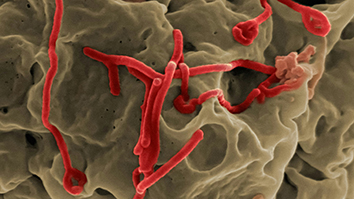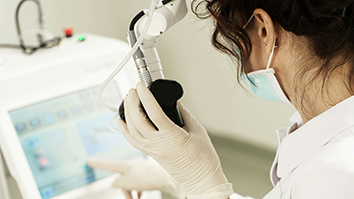Story
-

Researchers develop materials that can take on the toughest conditions
SRI’s advancements are in ceramic matrix composites, which are capable of withstanding extreme temperatures and corrosive environments.
-

Podcast: Re-imagining instructional quality and coaching
SRI’s Krystal Thomas discusses efforts to create supportive, equitable, and effective tools for educators.
-

SRI’s Genome Explorer: Enhanced genome browser delivers better user experience
Navigating genomes just became easier with dynamically responsive zoom and high-density display.
-

A new malaria treatment aims to provide protection from the disease
The injectable formulation is affordable and easily administered.
-

SRI sleep expert Fiona Baker discusses menopausal insomnia
Researchers study how menopause can affect sleep and women’s physical and mental health.
-

SRI researchers use AI to study deadly viruses
Machine learning algorithms identify how hemorrhagic fever viruses hijack human cells.
-

Podcast: Supporting students with behavioral and emotional needs
SRI’s Carl Sumi discusses effective strategies and interventions for student support.
-

SRI demonstrates the impact of “small AI” for experts
DASL combines machine learning and human expertise to provide insights for a variety of applications.
-

Podcast: Leveraging technology to support students with disabilities
SRI’s Adrienne Woods discusses opportunities to reduce barriers and improve outcomes for children.
-

Regional Economic Connectivity: A place-based strategy for growth and equity
SRI worked with the Initiative for a Competitive Inner City to understand and recommend paths for communities to connect and thrive.
-

SRI’s imagers are headed to Jupiter on a mission that will help determine if Europa could support life
SRI has a long history of working on space-related projects, starting in the 1960s.
-

Stefan Heck to join SRI’s board of directors
Heck will bring deep experience in AI, autonomous driving, sustainability, and other disruptive technologies.